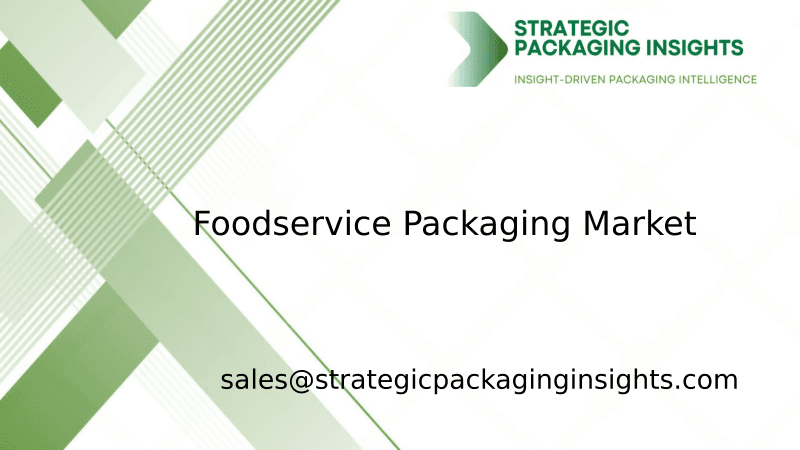- Home
- Packaging Products
- Crash Lock Bottom Cartons Market Size, Future Growth and Forecast 2033
Crash Lock Bottom Cartons Market Size, Future Growth and Forecast 2033
Crash Lock Bottom Cartons Market Segments - by Material Type (Paperboard, Corrugated Board, Others), End-Use Industry (Food & Beverage, Healthcare, Personal Care, Electronics, Others), Printing Technology (Flexography, Digital Printing, Lithography, Others), and Region (Asia Pacific, North America, Latin America, Europe, and Middle East & Africa) - Market Dynamics, Growth Opportunities, Strategic Drivers, and PESTLE Outlook (2025–2033)
Crash Lock Bottom Cartons Market Outlook
The Crash Lock Bottom Cartons market was valued at $12.5 billion in 2024 and is projected to reach $18.7 billion by 2033, growing at a CAGR of 4.5% during the forecast period 2025–2033. This market is experiencing significant growth due to the increasing demand for efficient and secure packaging solutions across various industries. The versatility and ease of assembly of crash lock bottom cartons make them a preferred choice for manufacturers looking to optimize packaging processes and reduce labor costs. Additionally, the rise in e-commerce and the need for Sustainable Packaging solutions are further propelling the market forward.
However, the market faces challenges such as fluctuating raw material prices and stringent environmental regulations. Despite these hurdles, the market holds substantial growth potential, driven by advancements in printing technologies and the increasing adoption of eco-friendly materials. The ongoing trend towards customization and branding in packaging is also expected to create new opportunities for market players, enabling them to offer innovative and tailored solutions to meet diverse customer needs.
Report Scope
| Attributes | Details |
| Report Title | Crash Lock Bottom Cartons Market Size, Future Growth and Forecast 2033 |
| Base Year | 2024 |
| Historic Data | 2017-2023 |
| Forecast Period | 2025-2033 |
| Number of Pages | 119 |
| Material Type | Paperboard, Corrugated Board, Others |
| End-Use Industry | Food & Beverage, Healthcare, Personal Care, Electronics, Others |
| Printing Technology | Flexography, Digital Printing, Lithography, Others |
| Region | Asia Pacific, North America, Europe, Latin America, Middle East & Africa |
| Customization Available | Yes* |
Opportunities & Threats
The Crash Lock Bottom Cartons market presents numerous opportunities for growth, particularly in the realm of sustainable packaging. As consumers become more environmentally conscious, there is a growing demand for packaging solutions that minimize environmental impact. This trend is encouraging manufacturers to invest in research and development to create recyclable and biodegradable carton options. Additionally, the rise of e-commerce has led to an increased need for secure and efficient packaging solutions, further driving demand for crash lock bottom cartons. Companies that can innovate and offer eco-friendly, cost-effective solutions are likely to gain a competitive edge in the market.
Another significant opportunity lies in the customization and personalization of packaging. With brands increasingly focusing on creating unique customer experiences, there is a rising demand for packaging that reflects brand identity and enhances product appeal. Crash lock bottom cartons offer a versatile platform for high-quality printing and design, allowing brands to differentiate themselves in a crowded marketplace. By leveraging advanced printing technologies and offering customizable options, manufacturers can tap into this growing trend and expand their market share.
Despite these opportunities, the market faces certain threats that could hinder growth. One of the primary challenges is the volatility in raw material prices, which can impact production costs and profit margins. Additionally, stringent environmental regulations and compliance requirements pose a challenge for manufacturers, necessitating investments in sustainable practices and materials. Companies that fail to adapt to these changing regulatory landscapes may face operational and financial setbacks.
The Crash Lock Bottom Cartons market is characterized by a competitive landscape with several key players vying for market share. The market is dominated by a mix of established companies and emerging players, each striving to innovate and offer superior products. The competitive dynamics are influenced by factors such as product quality, pricing strategies, distribution networks, and customer service. Companies that can effectively differentiate their offerings and build strong brand loyalty are likely to succeed in this competitive environment.
Among the major players in the market, Smurfit Kappa holds a significant share, known for its extensive product portfolio and commitment to sustainability. The company has invested heavily in research and development to create innovative packaging solutions that meet the evolving needs of customers. Similarly, DS Smith is another key player, recognized for its focus on sustainable packaging and strong customer relationships. The company's strategic acquisitions and partnerships have further strengthened its market position.
International Paper is also a prominent player in the Crash Lock Bottom Cartons market, leveraging its global presence and extensive distribution network to reach a wide customer base. The company's emphasis on quality and innovation has helped it maintain a competitive edge. Other notable players include WestRock, Mondi Group, and Georgia-Pacific, each contributing to the market's growth through their unique offerings and strategic initiatives.
Key Highlights Crash Lock Bottom Cartons Market

- Increasing demand for sustainable and eco-friendly packaging solutions.
- Rising adoption of advanced printing technologies for customization.
- Growth in e-commerce driving demand for secure packaging.
- Fluctuating raw material prices impacting production costs.
- Stringent environmental regulations influencing market dynamics.
- Expansion of distribution networks by key players.
- Innovations in recyclable and biodegradable carton materials.
- Focus on branding and personalization in packaging.
- Strategic acquisitions and partnerships enhancing market presence.
- Emergence of new players offering innovative solutions.
Top Countries Insights in Crash Lock Bottom Cartons
The United States is a leading market for Crash Lock Bottom Cartons, with a market size of $3.2 billion and a CAGR of 5%. The country's robust e-commerce sector and increasing demand for sustainable packaging solutions are key growth drivers. Additionally, advancements in printing technologies and a focus on customization are further propelling market growth.
In China, the market is valued at $2.8 billion, with a CAGR of 6%. The country's booming manufacturing sector and growing emphasis on eco-friendly packaging are driving demand for crash lock bottom cartons. Government initiatives promoting sustainable practices and the rise of e-commerce are also contributing to market expansion.
Germany's market is valued at $1.5 billion, with a CAGR of 4%. The country's strong focus on sustainability and innovation in packaging solutions is driving demand for crash lock bottom cartons. Additionally, the presence of key market players and advancements in printing technologies are supporting market growth.
India's market is valued at $1.2 billion, with a CAGR of 7%. The country's rapidly growing e-commerce sector and increasing awareness of sustainable packaging solutions are key growth drivers. Government initiatives promoting eco-friendly practices and the rise of digital printing technologies are also contributing to market expansion.
The United Kingdom's market is valued at $1 billion, with a CAGR of 3%. The country's focus on sustainability and innovation in packaging solutions is driving demand for crash lock bottom cartons. Additionally, the presence of key market players and advancements in printing technologies are supporting market growth.
Value Chain Profitability Analysis
The value chain of the Crash Lock Bottom Cartons market involves several key stakeholders, each contributing to the overall profitability of the industry. The primary stakeholders include raw material suppliers, manufacturers, distributors, and end-users. Raw material suppliers provide essential inputs such as Paperboard and adhesives, which are critical for the production of crash lock bottom cartons. Manufacturers then convert these raw materials into finished products, adding value through processes such as cutting, folding, and printing.
Distributors play a crucial role in the value chain by ensuring the efficient distribution of products to end-users. They often work closely with manufacturers to optimize supply chain operations and reduce lead times. End-users, including industries such as food and beverage, healthcare, and electronics, are the final link in the value chain, utilizing crash lock bottom cartons for packaging and transportation purposes.
Profit margins vary across different stages of the value chain, with manufacturers typically capturing the largest share due to their role in adding significant value to the raw materials. However, distributors also play a vital role in ensuring market reach and customer satisfaction, contributing to overall profitability. The increasing focus on digital transformation and automation is reshaping the value chain, enabling stakeholders to optimize operations and enhance profitability through improved efficiency and cost management.
Evolving Market Dynamics (2018–2024) and Strategic Foresight (2025–2033)
The Crash Lock Bottom Cartons market has undergone significant changes between 2018 and 2024, driven by evolving consumer preferences and technological advancements. During this period, the market experienced a steady growth rate, with a CAGR of 3.5%. The increasing demand for sustainable packaging solutions and the rise of e-commerce were key drivers of market expansion. Additionally, advancements in printing technologies and the growing emphasis on customization and branding contributed to market growth.
Looking ahead to the forecast period of 2025–2033, the market is expected to experience accelerated growth, with a projected CAGR of 4.5%. The continued focus on sustainability and the adoption of eco-friendly materials are expected to drive demand for crash lock bottom cartons. Additionally, the rise of digital printing technologies and the increasing emphasis on personalization and branding are anticipated to create new opportunities for market players.
Regional dynamics are also expected to shift during the forecast period, with Asia Pacific emerging as a key growth region. The region's booming manufacturing sector and increasing demand for sustainable packaging solutions are expected to drive market expansion. Additionally, government initiatives promoting eco-friendly practices and the rise of e-commerce are anticipated to contribute to market growth in the region.
Crash Lock Bottom Cartons Market Segments Insights

Material Type Analysis
The Crash Lock Bottom Cartons market is segmented by material type, with paperboard and corrugated board being the most commonly used materials. Paperboard is favored for its lightweight and cost-effective properties, making it a popular choice for various packaging applications. The increasing demand for sustainable and Recyclable Packaging solutions is driving the adoption of paperboard in the market. Additionally, advancements in paperboard manufacturing technologies are enabling the production of high-quality, durable cartons that meet the evolving needs of customers.
Corrugated board, on the other hand, is known for its strength and durability, making it ideal for packaging heavy and fragile items. The growing e-commerce sector and the need for secure packaging solutions are driving demand for corrugated board in the market. Additionally, the increasing focus on sustainability and the use of recycled materials are contributing to the growth of this segment. Manufacturers are investing in research and development to create innovative corrugated board solutions that offer enhanced performance and environmental benefits.
End-Use Industry Analysis
The Crash Lock Bottom Cartons market serves a wide range of end-use industries, including food and beverage, healthcare, personal care, electronics, and others. The food and beverage industry is a major consumer of crash lock bottom cartons, driven by the need for secure and efficient packaging solutions. The increasing demand for convenience foods and the rise of online food delivery services are further propelling demand in this segment. Additionally, the focus on sustainability and the use of eco-friendly materials are influencing packaging choices in the food and beverage industry.
The healthcare industry is another significant end-user of crash lock bottom cartons, with the need for secure and tamper-evident packaging solutions driving demand. The increasing focus on patient safety and the rise of pharmaceutical e-commerce are contributing to market growth in this segment. Additionally, the use of advanced printing technologies for branding and information dissemination is enhancing the appeal of crash lock bottom cartons in the healthcare industry.
Printing Technology Analysis
Printing technology plays a crucial role in the Crash Lock Bottom Cartons market, with flexography, digital printing, and lithography being the most commonly used methods. Flexography is favored for its cost-effectiveness and versatility, making it a popular choice for high-volume printing applications. The increasing demand for customized and branded packaging solutions is driving the adoption of flexography in the market. Additionally, advancements in flexographic printing technologies are enabling the production of high-quality, vibrant prints that enhance product appeal.
Digital printing, on the other hand, is gaining traction due to its ability to offer high-quality, customizable prints with quick turnaround times. The growing emphasis on personalization and the need for short-run printing solutions are driving demand for digital printing in the market. Additionally, the use of digital printing technologies for variable data printing and anti-counterfeiting measures is enhancing the appeal of crash lock bottom cartons in various industries.
Regional Analysis
The Crash Lock Bottom Cartons market is segmented by region, with Asia Pacific, North America, Europe, Latin America, and the Middle East & Africa being the key regions. Asia Pacific is expected to emerge as a key growth region during the forecast period, driven by the region's booming manufacturing sector and increasing demand for sustainable packaging solutions. Additionally, government initiatives promoting eco-friendly practices and the rise of e-commerce are anticipated to contribute to market growth in the region.
North America and Europe are also significant markets for crash lock bottom cartons, with the increasing focus on sustainability and the adoption of advanced printing technologies driving demand. The presence of key market players and the growing emphasis on customization and branding are further supporting market growth in these regions. Additionally, the rise of e-commerce and the need for secure packaging solutions are contributing to market expansion in North America and Europe.
Crash Lock Bottom Cartons Market Segments
The Crash Lock Bottom Cartons market has been segmented on the basis of
Material Type
- Paperboard
- Corrugated Board
- Others
End-Use Industry
- Food & Beverage
- Healthcare
- Personal Care
- Electronics
- Others
Printing Technology
- Flexography
- Digital Printing
- Lithography
- Others
Region
- Asia Pacific
- North America
- Europe
- Latin America
- Middle East & Africa
Primary Interview Insights
What are the key drivers of growth in the Crash Lock Bottom Cartons market?
What challenges does the market face?
How is the market expected to evolve in the coming years?
Which regions are expected to see the most growth?
What role does customization play in the market?
Latest Reports

The fiber drums market was valued at $1.2 billion in 2024 and is projected to reach $2.1 billion by 2033, growing at a CAGR of 6.5% during the forecast period 2025–2033.

The cosmetics and perfumery glass bottles market was valued at $1.5 billion in 2024 and is projected to reach $2.3 billion by 2033, growing at a CAGR of 4.8% during the forecast period 2025–2033.

The medical devices packaging market was valued at $25 billion in 2024 and is projected to reach $40 billion by 2033, growing at a CAGR of 5.5% during the forecast period 2025–2033.

The primary packaging labels market was valued at $35 billion in 2024 and is projected to reach $55 billion by 2033, growing at a CAGR of 5.2% during the forecast period 2025–2033.

The corrugated board packaging market was valued at $250 billion in 2024 and is projected to reach $380 billion by 2033, growing at a CAGR of 4.5% during the forecast period 2025–2033.

The Water Soluble Packaging Films market was valued at $2.8 billion in 2024 and is projected to reach $5.6 billion by 2033, growing at a CAGR of 8.1% during the forecast period 2025–2033.

The Aluminium Foil Packaging market was valued at $25 billion in 2024 and is projected to reach $40 billion by 2033, growing at a CAGR of 5.5% during the forecast period 2025–2033.

The self-heating food packaging market was valued at $4.5 billion in 2024 and is projected to reach $7.8 billion by 2033, growing at a CAGR of 6.2% during the forecast period 2025–2033.

The Smart Container market was valued at $2.5 billion in 2024 and is projected to reach $8.7 billion by 2033, growing at a CAGR of 14.5% during the forecast period 2025–2033.

The Automatic Labeling Machine market was valued at $2.5 billion in 2024 and is projected to reach $4.8 billion by 2033, growing at a CAGR of 7.2% during the forecast period 2025–2033.

The Hot Melt Glue Labeler market was valued at $1.2 billion in 2024 and is projected to reach $2.3 billion by 2033, growing at a CAGR of 6.5% during the forecast period 2025–2033.

The Ethical Label market was valued at $1.5 billion in 2024 and is projected to reach $3.2 billion by 2033, growing at a CAGR of 8.5% during the forecast period 2025–2033.

The Packaging Tensioner market was valued at $1.2 billion in 2024 and is projected to reach $2.3 billion by 2033, growing at a CAGR of 6.5% during the forecast period 2025–2033.

The foodservice packaging market was valued at $120 billion in 2024 and is projected to reach $180 billion by 2033, growing at a CAGR of 4.5% during the forecast period 2025–2033.

The nano-enabled packaging market was valued at $15.2 billion in 2024 and is projected to reach $35.6 billion by 2033, growing at a CAGR of 9.5% during the forecast period 2025–2033.

The Cold Seal Packaging market was valued at $1.5 billion in 2024 and is projected to reach $2.3 billion by 2033, growing at a CAGR of 4.8% during the forecast period 2025–2033.

The Transparent Barrier Packaging Films market was valued at $12.5 billion in 2024 and is projected to reach $20.3 billion by 2033, growing at a CAGR of 5.8% during the forecast period 2025–2033.

The Flatback Tape market was valued at $2.5 billion in 2024 and is projected to reach $4.1 billion by 2033, growing at a CAGR of 5.8% during the forecast period 2025–2033.

The packer bottle market was valued at $3.5 billion in 2024 and is projected to reach $5.8 billion by 2033, growing at a CAGR of 5.2% during the forecast period 2025–2033.

The Canada Nano-Enabled Packaging Food Beverages market was valued at $1.2 billion in 2024 and is projected to reach $3.5 billion by 2033, growing at a CAGR of 12.5% during the forecast period 2025–2033.

The India Aluminum Beverage Can market was valued at $1.2 billion in 2024 and is projected to reach $2.5 billion by 2033, growing at a CAGR of 8.5% during the forecast period 2025–2033.

The fast-food reusable packaging market was valued at $1.2 billion in 2024 and is projected to reach $3.5 billion by 2033, growing at a CAGR of 12.5% during the forecast period 2025–2033.

The pallets market was valued at $59.91 billion in 2024 and is projected to reach $88.69 billion by 2033, growing at a CAGR of 4.5% during the forecast period 2025–2033.

The lamination adhesives market was valued at $2.5 billion in 2024 and is projected to reach $4.1 billion by 2033, growing at a CAGR of 5.8% during the forecast period 2025–2033.

The garment packing machine market was valued at $1.2 billion in 2024 and is projected to reach $2.5 billion by 2033, growing at a CAGR of 8.5% during the forecast period 2025–2033.

The fiber drums market was valued at $1.2 billion in 2024 and is projected to reach $2.1 billion by 2033, growing at a CAGR of 6.5% during the forecast period 2025–2033.

The cosmetics and perfumery glass bottles market was valued at $1.5 billion in 2024 and is projected to reach $2.3 billion by 2033, growing at a CAGR of 4.8% during the forecast period 2025–2033.

The medical devices packaging market was valued at $25 billion in 2024 and is projected to reach $40 billion by 2033, growing at a CAGR of 5.5% during the forecast period 2025–2033.

The primary packaging labels market was valued at $35 billion in 2024 and is projected to reach $55 billion by 2033, growing at a CAGR of 5.2% during the forecast period 2025–2033.

The corrugated board packaging market was valued at $250 billion in 2024 and is projected to reach $380 billion by 2033, growing at a CAGR of 4.5% during the forecast period 2025–2033.

The Water Soluble Packaging Films market was valued at $2.8 billion in 2024 and is projected to reach $5.6 billion by 2033, growing at a CAGR of 8.1% during the forecast period 2025–2033.

The Aluminium Foil Packaging market was valued at $25 billion in 2024 and is projected to reach $40 billion by 2033, growing at a CAGR of 5.5% during the forecast period 2025–2033.

The self-heating food packaging market was valued at $4.5 billion in 2024 and is projected to reach $7.8 billion by 2033, growing at a CAGR of 6.2% during the forecast period 2025–2033.

The Smart Container market was valued at $2.5 billion in 2024 and is projected to reach $8.7 billion by 2033, growing at a CAGR of 14.5% during the forecast period 2025–2033.

The Automatic Labeling Machine market was valued at $2.5 billion in 2024 and is projected to reach $4.8 billion by 2033, growing at a CAGR of 7.2% during the forecast period 2025–2033.

The Hot Melt Glue Labeler market was valued at $1.2 billion in 2024 and is projected to reach $2.3 billion by 2033, growing at a CAGR of 6.5% during the forecast period 2025–2033.

The Ethical Label market was valued at $1.5 billion in 2024 and is projected to reach $3.2 billion by 2033, growing at a CAGR of 8.5% during the forecast period 2025–2033.

The Packaging Tensioner market was valued at $1.2 billion in 2024 and is projected to reach $2.3 billion by 2033, growing at a CAGR of 6.5% during the forecast period 2025–2033.

The foodservice packaging market was valued at $120 billion in 2024 and is projected to reach $180 billion by 2033, growing at a CAGR of 4.5% during the forecast period 2025–2033.

The nano-enabled packaging market was valued at $15.2 billion in 2024 and is projected to reach $35.6 billion by 2033, growing at a CAGR of 9.5% during the forecast period 2025–2033.

The Cold Seal Packaging market was valued at $1.5 billion in 2024 and is projected to reach $2.3 billion by 2033, growing at a CAGR of 4.8% during the forecast period 2025–2033.

The Transparent Barrier Packaging Films market was valued at $12.5 billion in 2024 and is projected to reach $20.3 billion by 2033, growing at a CAGR of 5.8% during the forecast period 2025–2033.

The Flatback Tape market was valued at $2.5 billion in 2024 and is projected to reach $4.1 billion by 2033, growing at a CAGR of 5.8% during the forecast period 2025–2033.

The packer bottle market was valued at $3.5 billion in 2024 and is projected to reach $5.8 billion by 2033, growing at a CAGR of 5.2% during the forecast period 2025–2033.

The Canada Nano-Enabled Packaging Food Beverages market was valued at $1.2 billion in 2024 and is projected to reach $3.5 billion by 2033, growing at a CAGR of 12.5% during the forecast period 2025–2033.

The India Aluminum Beverage Can market was valued at $1.2 billion in 2024 and is projected to reach $2.5 billion by 2033, growing at a CAGR of 8.5% during the forecast period 2025–2033.

The fast-food reusable packaging market was valued at $1.2 billion in 2024 and is projected to reach $3.5 billion by 2033, growing at a CAGR of 12.5% during the forecast period 2025–2033.

The pallets market was valued at $59.91 billion in 2024 and is projected to reach $88.69 billion by 2033, growing at a CAGR of 4.5% during the forecast period 2025–2033.

The lamination adhesives market was valued at $2.5 billion in 2024 and is projected to reach $4.1 billion by 2033, growing at a CAGR of 5.8% during the forecast period 2025–2033.

The garment packing machine market was valued at $1.2 billion in 2024 and is projected to reach $2.5 billion by 2033, growing at a CAGR of 8.5% during the forecast period 2025–2033.
